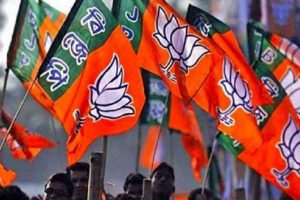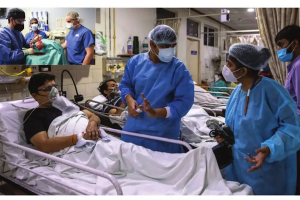The union government’s nodal agency for surveillance on communicable disease, National Centre for Disease Control (NCDC), stated on Friday that the unabated surge of Covid-19 in the national capital can be attributed to the highly infectious mutant strains circulating in neighbouring states in addition to the variants present in the city.
“The states like Punjab, Madhya Pradesh and Uttar Pradesh have mutant strains under circulation there. Delhi was also found to be having cases of the UK variant and the double mutant. However, what we are observing here is a mixed scenario where multiple strains from the neighbouring states, as well as those found in Delhi, are collectively contributing to the rise in cases,” Dr Sujit Kumar Singh, Director, NCDC told The Statesman.
Both the UK and the double mutant variants of the SARS-CoV-2 are believed to be highly infectious. The researchers place the UK variant, which originated in Britain, between 50 to 70 per cent in terms of higher transmissibility than the original virus that spread from Wuhan in China.
The NCDC had announced last month that the UK variant was detected in 81% of the samples it sequenced in Punjab while the double mutant (L452R plus E484Q) variant or B.1.617 was identified in samples from Delhi, Maharashtra, and Punjab.
As per the official figures the Centre released last month, Delhi had 153 cases of four different variants of concern.
Of them, 75 were associated with N501Y mutation, 65 of the UK strain or B.1.1.7, 5 cases were detected carrying E484Q variant while 4 had been identified with South Africa variant or B.1.351.
However, the genome sequencing data by INSACOG laboratories reveal that the double mutant is dominant in Maharashtra as it was detected in 60 per cent of the samples from the state.
Indian SARS-CoV-2 Consortium on Genomics (INSACOG) is a grouping of 10 national laboratories established by the union health ministry to carry out genomic sequencing and analysis of circulating Covid-19 viruses, and correlating epidemiological trends with genomic variants.
The researchers have also found that two recently emerging mutants, L452R and E484Q can escape from the restricted cellular immunity.











